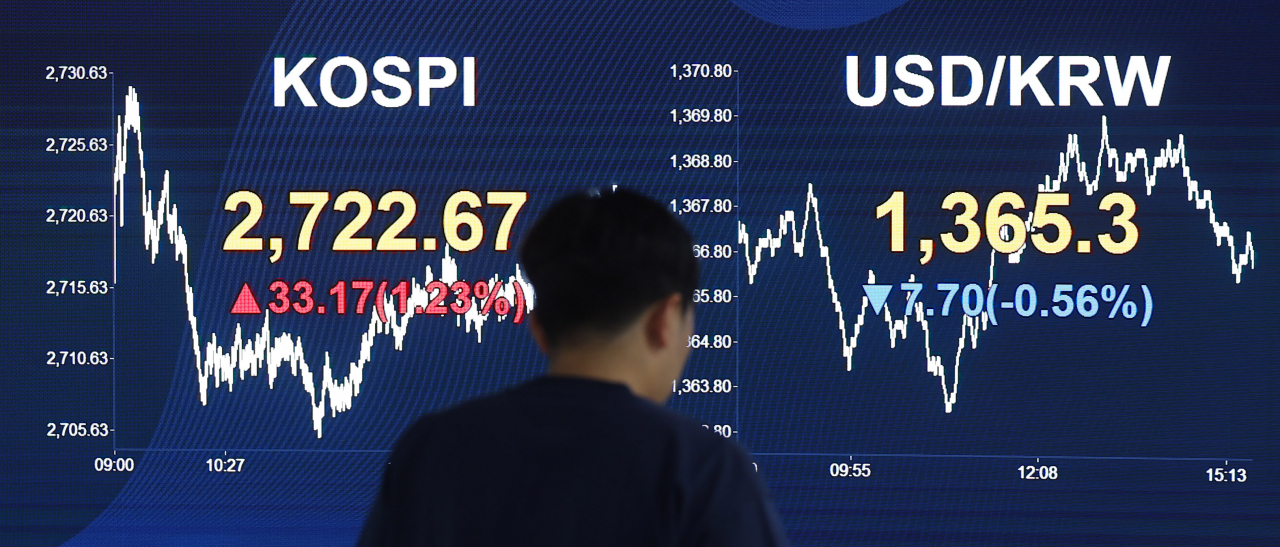
South Korean stocks closed over 1 percent higher on Friday, driven by investor optimism for potential US rate cuts following the European Central Bank's decision to cut interest rates for the first time in nearly five years. The local currency also strengthened against the US dollar. The benchmark Korea Composite Stock Price Index (KOSPI) climbed 1.23 percent to finish at 2,722.67, with heavy trade volume amounting to 771.8 million shares valued at 12.2 trillion won ($8.9 billion). Foreign investors and institutions were net buyers, while individuals were net sellers of shares. Market analysts attributed the KOSPI's rise to growing expectations of a shift towards a monetary easing policy following the ECB's rate cut announcement, as well as the release of softer-than-expected US jobs data earlier in the week. Additionally, investors were awaiting the US government's May jobs report. In terms of individual stock movements, Samsung Electronics saw a slight decline, while SK hynix and battery shares experienced gains. Financial and industrial giants such as KB Financial Group, Shinhan Financial Group, Posco Holdings, and LG Chem also recorded notable increases. Reports of SK's chairman discussing enhanced cooperation with TSMC in Taiwan led to a substantial surge in SK's stock value. The local currency closed at 1,365.30 won against the US dollar, marking a 7.7 won increase from the previous session's close. Overall, the South Korean stock market closed on a positive note, with various factors contributing to the day's trading activity and movements in specific stocks.
